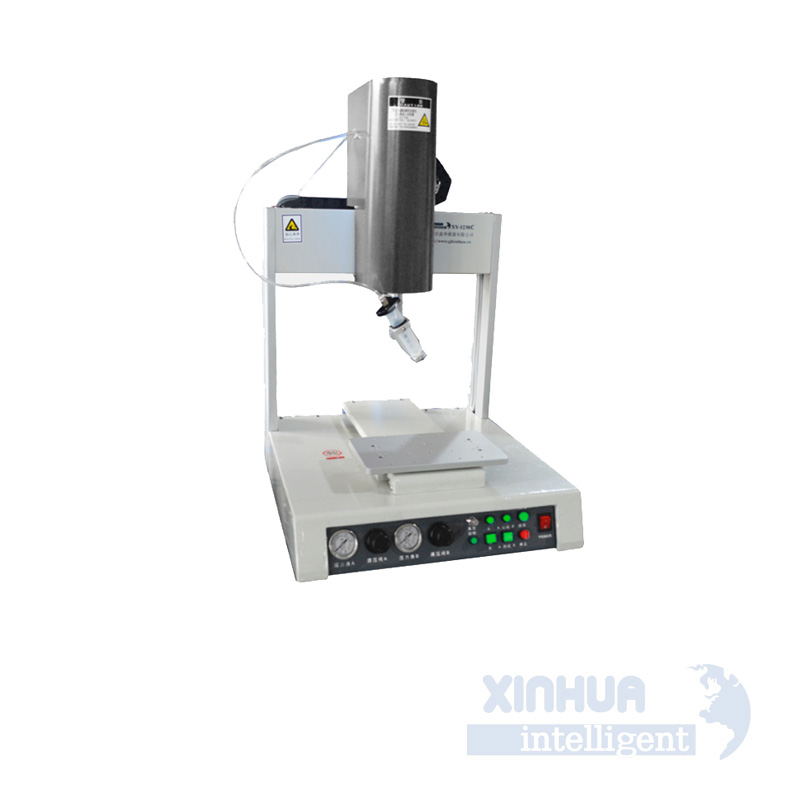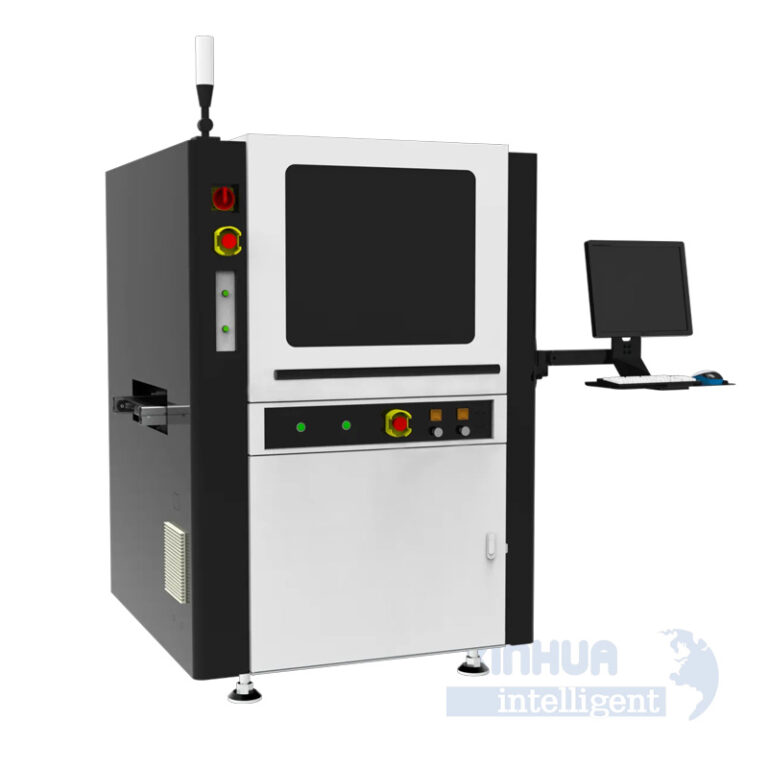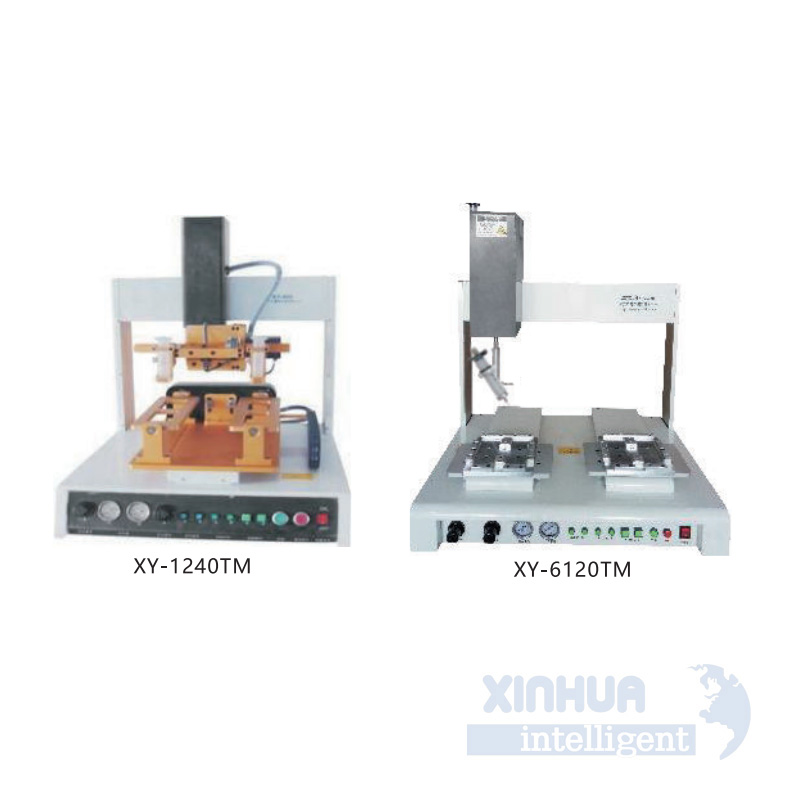
The Role of Automatic Soldering Machines in Modern Manufacturing
In today’s fast-paced world, the manufacturing industry is constantly evolving to meet the demands of efficiency, precision, and cost-effectiveness. One of the key innovations driving this evolution is the automatic soldering machine. These machines have become indispensable in various industries, from electronics to automotive, offering solutions to common challenges faced in manual soldering processes. This article explores the common pain points associated with traditional soldering methods, practical and technical solutions provided by automatic soldering machines, real-world applications across different sectors, and concludes with a call-to-action emphasizing the capabilities of Xinhua Intelligent.
Common Pain Points or Challenges in Traditional Soldering

Traditional soldering methods, while effective for certain applications, come with several challenges that can hinder productivity and quality in modern manufacturing environments. Below are some of the most prevalent issues:
1. Inconsistent Quality
Manual soldering often leads to inconsistent results due to human error. Factors such as uneven heat application, incorrect solder joint formation, and improper flux usage can compromise the integrity of electronic components. This inconsistency not only affects product reliability but also increases the likelihood of field failures, leading to costly repairs and replacements.
2. Labor-Intensive Process
Soldering is a labor-intensive task that requires skilled operators to perform repetitive actions. As demand grows, so does the need for more manpower, which can strain resources and increase operational costs. Moreover, finding and retaining skilled labor in this specialized field can be challenging, further complicating production schedules.
3. High Error Rates
Human errors, such as missed joints or cold soldering, are common in manual operations. These mistakes can lead to defective products, necessitating rework or scrapping, both of which add to the overall production cost. Additionally, these errors can delay delivery timelines, impacting customer satisfaction.
4. Health and Safety Concerns
Prolonged exposure to solder fumes and heat can pose health risks to workers. Ensuring a safe working environment involves additional expenses for ventilation systems, personal protective equipment (PPE), and regular health checks, all of which contribute to increased overheads.
5. Limited Scalability
Scaling up production using manual methods can be difficult and inefficient. Adding more personnel and workstations may not proportionally increase output due to space constraints, coordination challenges, and diminishing returns on investment.
These challenges highlight the necessity for automated solutions that can address the limitations of manual soldering and enhance manufacturing processes.
Practical and Technical Solutions with Automatic Soldering Machines
Automatic soldering machines offer a range of solutions to overcome the challenges associated with traditional soldering methods. By integrating advanced technologies and automation, these machines provide precise, efficient, and scalable soldering capabilities.
1. Enhanced Precision and Consistency
Automatic soldering machines utilize computer-controlled systems to ensure consistent heat application and accurate positioning of solder joints. This precision reduces the risk of defects and ensures uniformity across all products. Advanced sensors and feedback mechanisms allow for real-time adjustments, maintaining optimal conditions throughout the soldering process.
2. Increased Productivity

Automation eliminates the need for repetitive manual tasks, allowing machines to operate continuously without fatigue. This leads to higher throughput and faster production cycles. With the ability to handle multiple joints simultaneously, automatic soldering machines significantly boost productivity compared to their manual counterparts.

3. Reduced Error Rates
The integration of robotics and AI in automatic soldering machines minimizes the occurrence of human errors. Automated inspection systems can detect and correct defects in real time, ensuring high-quality outputs. This proactive approach not only reduces rework but also enhances overall product reliability.
4. Improved Safety Standards
By reducing direct human interaction with soldering materials, automatic machines lower the risk of exposure to harmful fumes and heat. Advanced filtration systems within these machines capture and neutralize hazardous particles, creating a safer working environment. This not only protects employees but also complies with stringent safety regulations.
5. Flexibility and Scalability
Modern automatic soldering machines are designed to adapt to various production requirements. They can be easily reprogrammed to accommodate different product designs and configurations, providing flexibility in manufacturing processes. Furthermore, their modular design allows for scalability, enabling businesses to expand production capacity as needed without significant disruptions.
6. Cost Efficiency
While the initial investment in automatic soldering machines may seem high, the long-term savings in terms of reduced labor costs, minimized waste, and improved product quality make them a cost-effective solution. Additionally, the ability to scale operations efficiently contributes to better resource utilization and financial returns.
By addressing the common challenges of manual soldering, automatic machines pave the way for more efficient, reliable, and sustainable manufacturing practices.
Real-World Applications of Automatic Soldering Machines
The versatility of automatic soldering machines makes them suitable for a wide array of applications across different industries. Here are some examples of how these machines are utilized in real-world scenarios:
1. Electronics Manufacturing
In the electronics sector, automatic soldering machines play a crucial role in assembling printed circuit boards (PCBs). These machines can accurately place and solder tiny components, ensuring the functionality and durability of devices ranging from smartphones to medical equipment. The precision offered by these machines is essential for maintaining high standards in an industry where miniaturization and complexity are ever-increasing.
2. Automotive Industry
The automotive sector relies heavily on automatic soldering machines for producing wiring harnesses, control units, and other electrical components. These machines ensure the robustness of connections necessary for the harsh operating conditions experienced by vehicles. The ability to handle large volumes and diverse component types makes them ideal for meeting the demands of this dynamic industry.
3. Renewable Energy Sector
With the growing emphasis on renewable energy, automatic soldering machines are used extensively in the production of solar panels. These machines facilitate the soldering of photovoltaic cells, ensuring optimal electrical conductivity and structural integrity. Their precision and speed contribute to the mass production of solar panels required to meet global energy needs.
4. Aerospace and Defense
In aerospace and defense applications, reliability is paramount. Automatic soldering machines are employed to create secure and durable connections in avionics, navigation systems, and communication devices. The high precision and quality assurance provided by these machines are critical for ensuring the performance and safety of aircraft and defense systems.
5. Consumer Goods
From household appliances to wearable technology, automatic soldering machines are integral to the production of consumer goods. They enable manufacturers to produce high-quality products at competitive prices, meeting the expectations of discerning customers in a rapidly evolving market.
These applications demonstrate the indispensable role of automatic soldering machines in enhancing productivity and quality across various industries. Their ability to adapt to specific requirements makes them a valuable asset for businesses aiming to stay competitive in their respective fields.
Conclusion: Embrace Automation with Xinhua Intelligent
As we have explored, automatic soldering machines offer comprehensive solutions to the challenges faced in traditional soldering processes. From enhancing precision and consistency to improving safety and scalability, these machines revolutionize manufacturing practices, making them more efficient and cost-effective.
If you’re looking to integrate cutting-edge technology into your production line, consider partnering with Xinhua Intelligent. Renowned for its innovative solutions and commitment to quality, Xinhua Intelligent provides state-of-the-art automatic soldering machines tailored to meet the unique needs of your business. Their expertise and support ensure seamless implementation and optimal performance, helping you achieve your production goals.
Don’t let the limitations of manual soldering hold back your business. Take the next step towards automation by contacting Xinhua Intelligent today. Discover how their advanced automatic soldering machines can transform your manufacturing processes and drive your business towards success. Embrace the future of manufacturing with confidence and precision.
